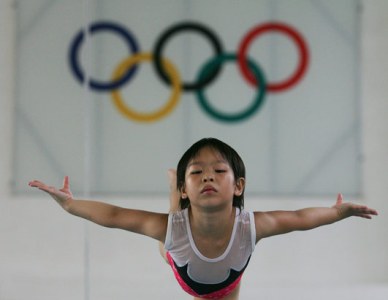 We often see kids who excel in practice, but freeze up during games. This can be frustrating and confusing for parents and coaches. What’s going on in the young athlete’s mind, and what can sports parents and coaches do about it?
We often see kids who excel in practice, but freeze up during games. This can be frustrating and confusing for parents and coaches. What’s going on in the young athlete’s mind, and what can sports parents and coaches do about it?
First, sports parents and coaches should help young athletes understand that they create their own confidence destiny. If kids begin a game needing immediate results (such as getting the first hit or basket of the game), they’re hurting their confidence.
It is critical to remind young athletes that they’ve been practicing to develop confidence for many years. Don’t let them lose their hard-earned confidence by worrying about achieving immediate results!
What’s more, athletes need to understand that they’ll be more successful if they assume full responsibility for their own confidence before competition begins. This is why it’s called self-confidence!
Often, athletes take a back seat approach and wait until they make a couple of plays before they decide how confident they should feel.
If this is how your young athlete thinks, she needs positive results before she feels confident. In other words, she needs to make that great hit or basket before she can begin to feel confident.
If this is true of the young athletes in your life, you can help. Tell them they need to change how they think before entering competition. Tell them not to worry about making that first hit, goal or basket right away!
Instead, they should draw on their many successes even before the game or competition begins. For example, a young tennis player may draw on playing well in past tournaments, having success against peers or simply from his or her ability to serve consistently in the past.
As a parent you can use different confidence boosting strategies to help your child be proactive and boost confidence prior to competition. Try using the confidence boosting strategies below to help your child be proactive with confidence prior to competition.
Self talk can be a powerful confidence boosting strategy for young athletes prior to competition. There are two types of self-talk — negative and positive. Negative self-talk undermines confidence and typically consists of doubt driven statements about ones performance.
Positive self-talk enhances confidence through the use of success driven statements about performance. You should teach your child to use positive self-talk statements to boost confidence before competition. For example, “I have hit straight drives all seasons, today is no different every drive is going down the middle”.
Using mental imagery can also help your child athlete feel confident. Mentally rehearsing successful plays or points prior to competition reinforces success and confidence. Have your child rehearse positive scenarios that can occur during a competition. For example, hitting a backhand drive down the line to win or holing out a long birdie putt.
Before competition is a time for your child to warm up and get his or her game face on. The warm up should not be used for a coaching or practice session where mechanics and technique are emphasized. Instead, discuss the game and remember to be positive about your athlete’s past experiences and successes. It is important that you don’t point out mistakes or losses before competition. You might want to say positive statements such as, “Enjoy the game! I know you want to do your best!”
Finally, it is important for you as the parent to avoid burdening your children with expectations. Be careful of saying things like, “I want you to score four goals today!” Or, “I know you can beat her to the finish line.”
Children sometimes spin your statements intended to build their confidence into expectations. They will likely try to adopt these expectations as their own, which pressures them to perform. Athletes then become frustrated and can lose confidence if they don’t meet their expectations.
Author: Dr. Patrick J Cohn, Peak Performance Sports

























